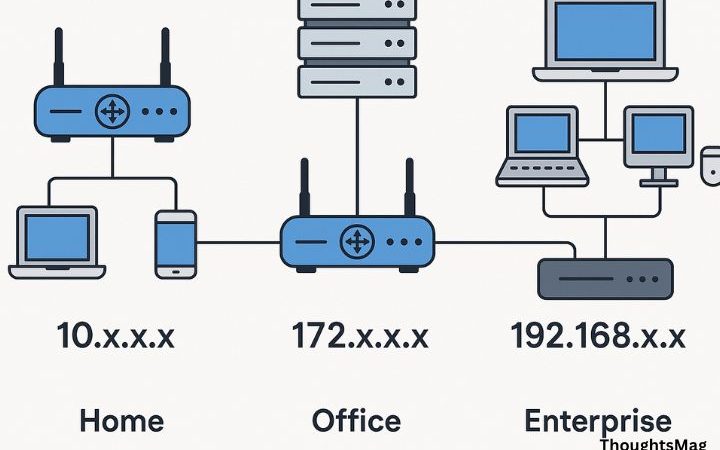Exploring the Best Cyber Security Courses and Programs
In the rapidly evolving landscape of cyberspace, where digital threats lurk around every corner, the importance of cybersecurity has never been more pronounced. With cyber attacks becoming increasingly sophisticated, the demand for skilled cybersecurity professionals is on the rise. For those looking to fortify their defenses and embark on a journey into the realm of cybersecurity, the availability of online courses and programs offers a flexible and accessible gateway to acquiring essential skills and knowledge.
The Rise of Online Cyber Security Courses:
In recent years, online education has witnessed a surge in popularity, and the field of cybersecurity is no exception. Online courses provide a convenient and flexible way for individuals to delve into the intricacies of cybersecurity, irrespective of their geographical location or daily commitments. These courses cover a broad spectrum of topics, ranging from the fundamentals of cybersecurity to specialized areas like ethical hacking, penetration testing, and network security.
As cyber threats continue to evolve and become more sophisticated, there is a growing demand for professionals who can protect our digital assets. If you’re interested in pursuing a career in cybersecurity, you’ll need the right education and training. In this blog post, we’ll explore the best cyber security course and programs to help you kickstart or advance your cybersecurity career.
- Certified Information Systems Security Professional (CISSP):
- CISSP is a globally recognized certification that covers various aspects of cybersecurity, including security and risk management, asset security, and more.
- Certified Ethical Hacker (CEH):
- CEH is ideal for those interested in ethical hacking and penetration testing. This course provides hands-on training and knowledge on how to think and act like a hacker to strengthen security measures.
- CompTIA Security+:
- CompTIA Security+ is an entry-level certification that covers essential cybersecurity skills and is widely recognized across the industry.
- Cybersecurity Master’s Degree Programs:
- For those looking for in-depth knowledge and expertise in cybersecurity, consider enrolling in a master’s degree program in cybersecurity. Programs like these provide a comprehensive education in various aspects of cybersecurity.
- Cybersecurity Bootcamps:
- If you’re looking for an accelerated learning experience, cybersecurity bootcamps can be a great option. These intensive programs offer hands-on training and real-world experience.
- Online Courses and MOOCs:
- There are numerous online courses and Massive Open Online Courses (MOOCs) available, often offered by top universities and institutions. These courses allow you to study at your own pace and can be a more affordable option.
- Vendor-Specific Training:
- Many cybersecurity vendors, such as Cisco, Palo Alto Networks, and Fortinet, offer training programs and certifications specific to their products and technologies. These can be valuable if you have a particular interest in a specific technology stack.
- Government Programs and Initiatives:
- Some governments and organizations offer cybersecurity training programs and scholarships to address the growing demand for skilled cybersecurity professionals. Check with your local government or cybersecurity organizations for available opportunities.
Advantages of Cyber Security Programs:
In-Depth Curriculum:
- Programs often include a more extensive curriculum compared to individual courses. They cover a wide range of topics, ensuring participants have a well-rounded understanding of cybersecurity principles and practices.
Structured Learning Path:
- Programs typically follow a structured learning path, guiding participants from foundational concepts to advanced topics. This sequential approach helps build a strong foundation before delving into more complex subjects.
Networking Opportunities:
- Participating in a cybersecurity program provides opportunities for networking with peers and industry professionals. Collaborative projects, discussion forums, and virtual events create a sense of community among participants.
Mentorship and Support:
- Many cybersecurity programs offer mentorship and support services, allowing participants to seek guidance from experienced professionals in the field. This mentorship can be invaluable for career growth and skill development.
Advantages of Online Cyber Security Courses:
Flexibility and Accessibility:
- Online cybersecurity courses offer the flexibility to learn at one’s own pace. This is particularly advantageous for working professionals or individuals with other commitments, allowing them to balance learning with their existing schedules.
Diverse Course Options:
- The digital landscape of online education provides an extensive array of cybersecurity courses. Whether you’re a novice looking for foundational knowledge or an experienced professional seeking advanced skills, there are courses tailored to various skill levels and interests.
Hands-On Learning:
- Many online cybersecurity courses incorporate practical, hands-on learning experiences. Virtual labs, simulations, and real-world scenarios enable participants to apply theoretical knowledge in a practical setting, enhancing their problem-solving skills.
Cost-Effective:
- Online courses often come with a more affordable price tag compared to traditional in-person training. This cost-effectiveness makes cybersecurity education accessible to a broader audience, democratizing the process of acquiring crucial skills.
When choosing a cyber security program, consider your current skill level, career goals, and budget. It’s also essential to stay up-to-date with the latest developments in cybersecurity, as the field is constantly evolving.
In conclusion, the best cyber security course or program for you will depend on your individual needs and goals. Whether you’re just starting your career or looking to advance your skills, there are options available to help you succeed in the exciting and ever-evolving field of cybersecurity.






